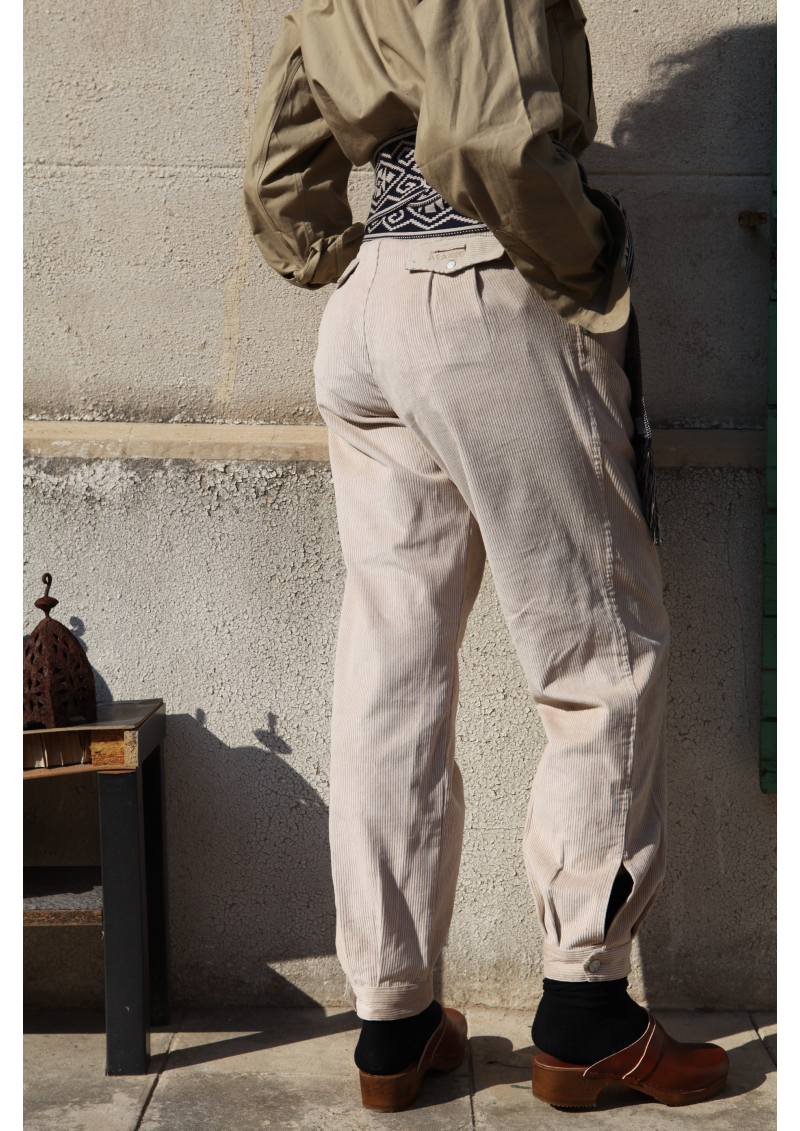








The pants of the heroes of the Argentine pampas: the bombacha.
Made in Buenos Aires.
Some sizes require a manufacturing delay, do not hesitate to contact us at contact@detoujours.com for more info.

In the South American prairies, the gauchos are the lords of the land. Kings of the Argentinean pampas, they are guardians of the herds, as well as guardians of the fields. Probably of Quechua origin, gaucho means " lonesome ", " wanderer ", " peasant " or " lover ", in an obvious synthesis which says well the love of this rider for his lands, but also this essential quest for freedom. As a true Argentine cowboy, he crosses the infinite spaces of the pampas in search of his herds as well as his independence. The gaucho chooses an austere, isolated life where nights under the stars are frequent, and the guitar is his best partner. It is not uncommon, however, for the gaucho to settle in a small rancho, settle down and start a family. The gaucho remains a key figure in Argentine culture, especially since the 19th century and the wars of independence. Ally of the armies of liberation, he is still considered today as an icon of courage and honor.
The gaucho wardrobe is part of this mythical heritage of the brave and free cowboy. At deTOUJOURS, we seek the gaucha outfit at its source, at our historical manufacturer, established since always in Buenos Aires.

Handmade in Buenos Aires
100% national materials (Argentina)
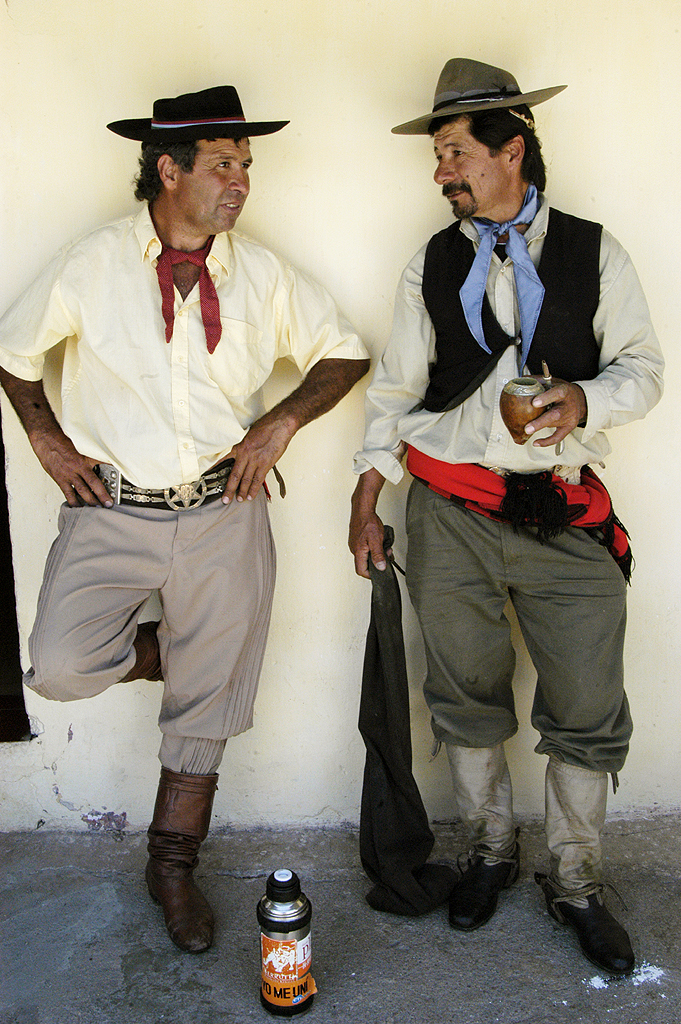 These traditional pants of the Argentinian gauchos, the signature look of the heroes of the pampas, are a discreet pillar of this culture. Typically tightened at the ankles, with its pleats at the waist at the front and back, more or less puffed up for comfort on horseback, it is still worn and made locally but has come a long way to seduce internationally.
These traditional pants of the Argentinian gauchos, the signature look of the heroes of the pampas, are a discreet pillar of this culture. Typically tightened at the ankles, with its pleats at the waist at the front and back, more or less puffed up for comfort on horseback, it is still worn and made locally but has come a long way to seduce internationally.
In the South American prairies, the gauchos are the lords of the land. Kings of the Argentinean pampas, they are guardians of the herds, as well as guardians of the fields. Probably of Quechua origin, gaucho means " lonesome ", " wanderer ", " peasant " or " lover ", in an obvious synthesis which says well the love of this rider for his lands, but also this essential quest for freedom. As a true Argentine cowboy, he crosses the infinite spaces of the pampas in search of his herds as well as his independence. The gaucho chooses an austere, isolated life where nights under the stars are frequent, and the guitar is his best partner. It is not uncommon, however, for the gaucho to settle in a small rancho, settle down and start a family. The gaucho remains a key figure in Argentine culture, especially since the 19th century and the wars of independence. Ally of the armies of liberation, he is still considered today as an icon of courage and honor.
The gaucho wardrobe is part of this mythical heritage of the brave and free cowboy. At deTOUJOURS, we seek the gaucha outfit at its source, at our historical manufacturer, established since always in Buenos Aires : here are the bombacha pants.
This mythical garment has become the epitome of the gaucho wardrobe because it is a perfect piece of technical equipment that has quickly become essential for long horseback rides. The bombacha is nicely pleated at the waist and widens at the legs providing optimal comfort, as no rider's movement can be limited. It tightens around the ankles so that they don't get caught in the bushes they cross, or simply to fit more easily into leather boots. The bombacha is truly part of the uniform of the Argentine gaucho, yet it has unsuspected and ancient origins to which we must pay tribute. In the 19th century, a surprising pact was made across the Atlantic between Argentina and France. An Argentinian dignitary, who had been sent to Europe at the time, became aware of a French military surplus that had been left abandoned since the end of the Crimean War. More than 100,000 French military uniforms were unused, including the baggy pants of the Zouaves of Algeria. The emissary reports this information to the Argentine president, Justo José de Urquiza, who signs a commercial agreement with the French general Louis-Christophe-Léon Juchault de la Moricière. The Zouaves' pants were an immediate success among the Argentine gauchos.
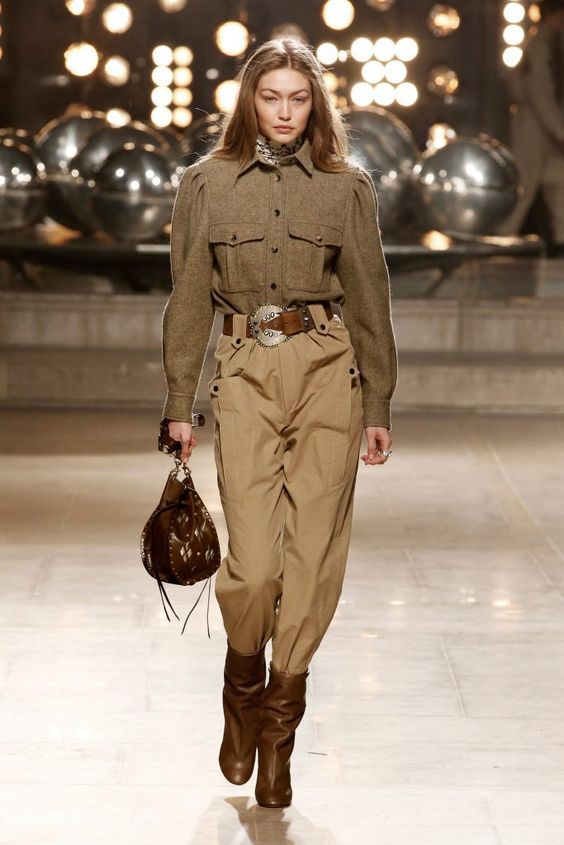
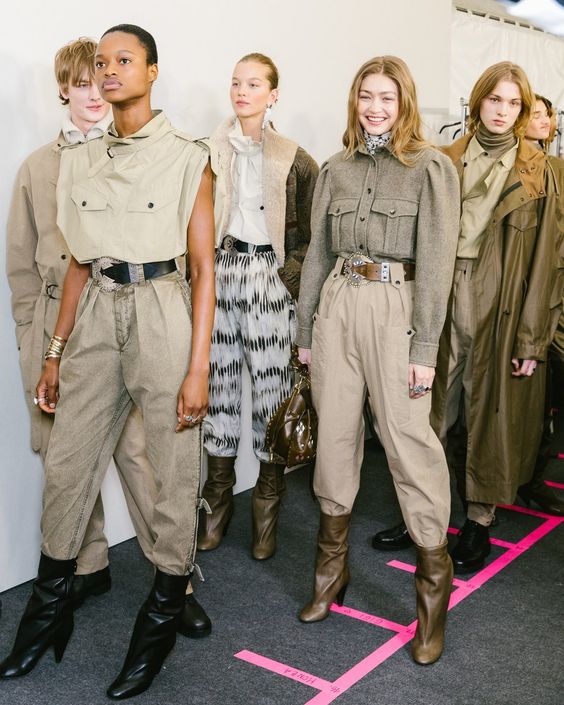
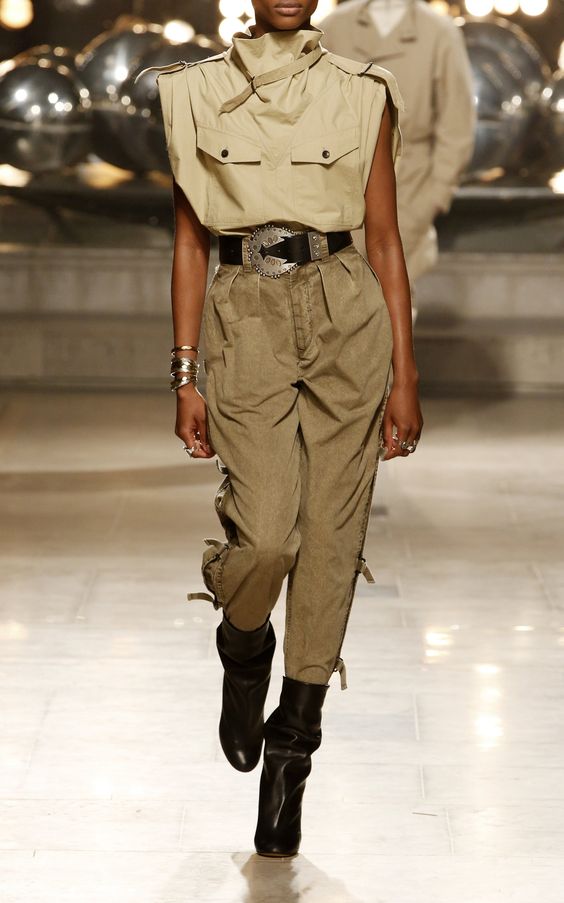
The exchanges between France and Argentina do not stop there because, more recently, in the XXth century, the fabric of the bombachas was massively imported from France and more particularly from the Basque Country. While the fabrics imported in the 19th century were, therefore, in the colors of the French military uniforms, from the end of the 19th century the Argentinean national factories produced in turn bombachas, more colorful, varying the models and fabrics, declining it for all occasions and celebrations.
Adopted by Argentines out of the pampas and bull herds, they are the pants of the native culture, hijacked like trellis or jeans to be worn casually. This traditional garment will also be adapted with sophistication to the city as well as on the catwalk.
Thus the fascinating Argentine culture of the gaucho has not failed to inspire fashion designers, the detail of a puffy cut where the ankle is tightened the same way, a profusion of typical clips, the insider immediately recognizes the cultural source that gives this unique look.
For a long time, from Ralph Lauren, to Hermes of course, who knows how large the world of the horse is, in haute couture from Jean Paul Gaultier to St. Laurent version Slimane or in ready-to-wear from Isabel Marant who is always an amazon, through Victoria Beckham or emerging brands from Latin America, the contribution made to this world is growing.

De Toujours invites you to discover clothes and accessories at the source of the style, original pieces that fashion has always diverted.
© DE TOUJOURS 2025